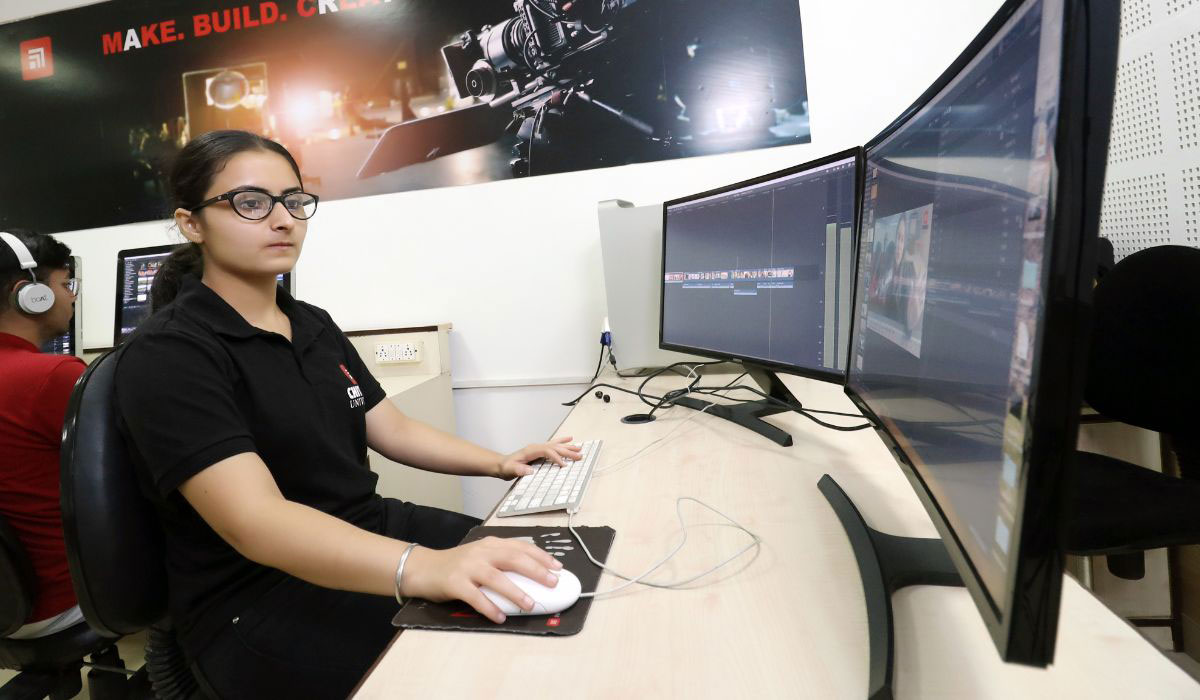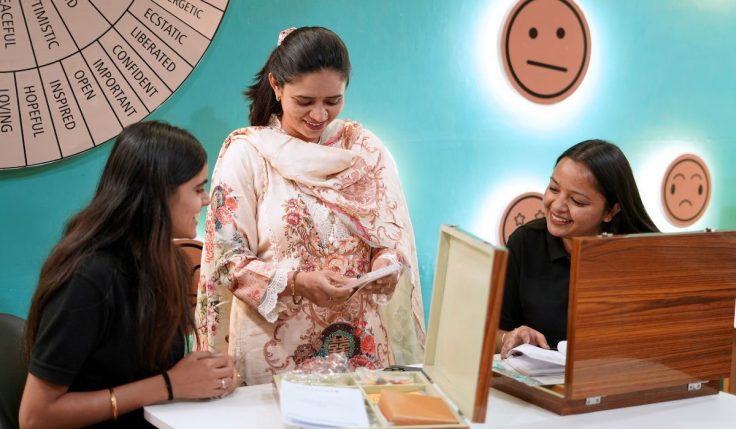The quickly growing media and communication sector has seen massive growth in many sectors including television, movies, advertisement, music, print media, and digital media. If you wish to capitalise on this then starting a career in the journalism and media sector can be the right choice for you.
Journalism and mass communication are two intertwined fields that serve as the backbone of the information industry. Journalism is about reporting news and events and Mass Communication is a broader term including the study of how information can be distributed to a large audience with various mediums.
In case you are someone who wishes to build a career in the media and communication sector then you must pursue a Master’s Degree in Journalism and Mass Communication. Keep reading to know more about what to expect in this course.
What is a Master Degree in Journalism and Mass Communication?
A master’s degree program in media and mass communication delves into both foundational and advanced theories about the exchange of information on a large scale. Students pursuing a Master’s in Mass Communication can learn about communication research methods, mass media ethics, and best practices required to do well in the field of mass media.
Students will also develop practical knowledge of the message creation process in different mediums while learning how to use these messages for targeting specific audiences. Master’s in Mass Communication features courses that include digital media development and management, media studies, mass media research, journalism, multimedia journalism, integrated marketing communication, media and globalization, and the legal implications of mass media.
The curriculum for Master’s in Mass Communication generally includes coursework in Mass Communication research, medical law, digital research, telecommunications, theories of mass communication, new technology and media, and other related subjects. Students can expect to acquire a multidisciplinary skill set that allows them to become storytellers with written, oral, and visual mediums in research and data analysis.
Why You Should Pursue M.A. in Journalism and Mass Communication?
The Indian media and entertainment industry is one of the fastest growing industries with many segments including film, television, advertising, print, and digital media witnessing tremendous growth in the last few years. The industry is driven by strong consumption in non-metro and small cities with an intense emergence of regional media and new media businesses and formats.
The master’s program in Journalism and Mass Communication is built on a strong theoretical foundation supported by applied research into the dynamics of communication and creative industries with professional expertise. What’s more, the program delivery is also tailored to meet the needs of different fields of Media with a good combination of formal lectures, seminars, computer-based learning, individual and project work, guest lectures, and industry training. The focus of this program is to nurture socially responsible media professionals backed with the latest inputs from industry and well-trained faculty along with state-of-the-art infrastructure.
Program Highlights of M.A. in Journalism and Mass Communication:
UNESCO Model Curricula: The curriculum for all academic programs in Journalism has been inspired and adapted from the UNESCO Model Curricula for Journalism Education. The foundation of this curriculum is also designed to promote the below-mentioned practices.
Students are trained to think critically by incorporating skills in analysis, comprehension, synthesis, and evaluation of unfamiliar material along with a basic understanding of evidence and research methods.
The students are trained to gain knowledge of national and international political, economic, cultural, religious, and social institutions.
Students are also trained to gain knowledge of current affairs and issues along with general knowledge of history and geography.
State-of-the-art Equipment: Chitkara has state-of-the-art equipment for teaching students of journalism and mass communication. Students can learn the below-mentioned things using this equipment.
- A television studio with four digital video cameras, teleprompters, and professional lights besides other equipment.
- A production control room that allows students to do news bulletins and live interviews with an audio/digital console.
- An editing lab armed with iMac Machines loaded with Final Cut Pro and an assemblage of software for matching the process.
- The radio broadcasting brand with the facility of live broadcasts armed with a radio studio and relevant editing software.
- Layout designing, Adobe Photoshop, and Coral Draw.
Also, read this blog post: Mastering Mass Communication: Your Guide to the 7 Cs
Radio Chitkara 107.8 Fm: The community radio of Chitkara University can be heard on 107.8 MHz FM and it is a station that is managed by the mass media students. Chitkara has independent recording and broadcasting facilities that provide an excellent learning platform for all students who run the radio station. These facilities make Chitkara a leading choice for students pursuing Journalism and Mass Communication in Chandigarh and Punjab.
If you are pursuing a Master’s Degree in Journalism and Mass Communication then you can explore the below-mentioned career opportunities.
- Brand Manager
- Senior Copywriter
- Digital Media Expert
- Film Maker
- Print/Electronic and Media Journalist
- Media Planner
- Event Manager
Summing It Up:
Gaining a strong knowledge of audience behaviour and content creation, students with a degree in M.A. in Journalism and Mass Communication at Chitkara are trained to become professionals who can pursue wide professional opportunities.
The program comes with a curriculum that is inspired by technical skills along with the artistic, historical, and theoretical foundations of the media discipline. If you also wish to do well professionally in the media industry then enroll for an M.A. in Journalism and Mass Communication at Chitkara to learn more.






